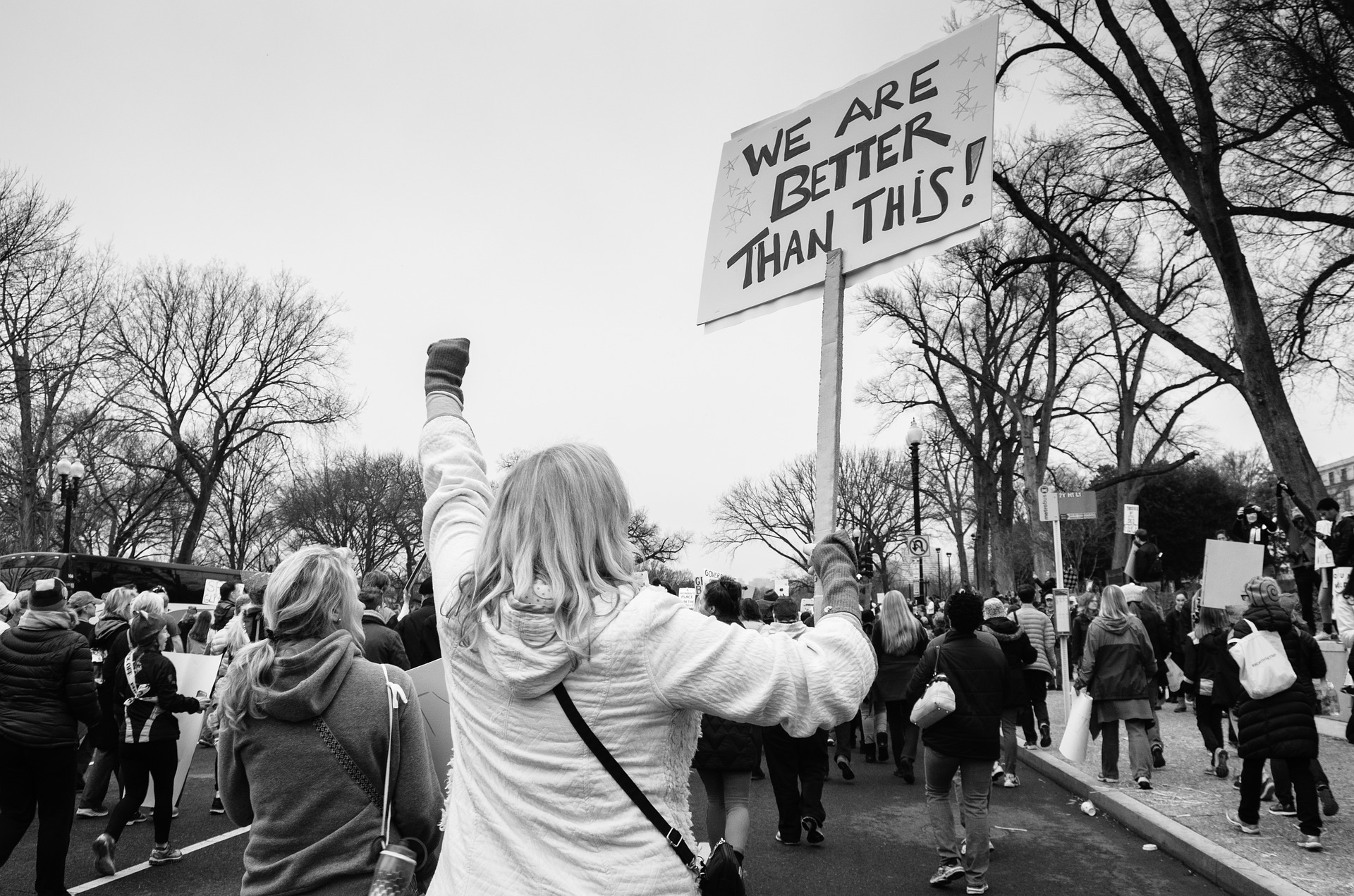Has “social justice” become a new religion in what many believe to be an irreligious age?
Andrew Sullivan recently reflected on the decline of Christianity and the rise of “personal spiritualties” and “political religions,” noting the weaknesses of our modern orthodoxies. “We’re mistaken if we believe that the collapse of Christianity in America has led to a decline in religion,” Sullivan wrote. “It has merely led to religious impulses being expressed by political cults.”
On the right, we see the over-elevation of a narrow nationalism to religious heights and the clumsy conflation of Christian witness with political control. On the left, we see an identitarian shame culture based on arbitrary notions of equality and justice, in which those who violate progressive dogmas can only be dealt with by coercion or cultural banishment.
Both bear recognizable religious vocabularies and impulses, but given the right’s more overt flirtations with “traditional religion,” it is the left’s variation that’s often framed as being resilient to faith or superstition.
In a lengthy and provocative essay, “Postmodern Religion and the Faith of Social Justice,” authors James Lindsay and Mike Nayna challenge that notion, setting their sights on the modern “social justice movement” and its weaknesses as a cult of collective identity.
If such a movement does mirror those religious tendencies, what that might imply about its authority and credibility in shaping our cultural imagination, not to mention our public policies and institutions?
”Whether or not Social Justice is a religion, it is certainly religion-like enough to treat in a way that’s similar to how we should treat religions,” they write. “That is, we should approach them with an attitude generally associated with secularism. Social Justice will not like this because it is likely to enable a necessary corrective to its current bid for institutional and cultural power.”
To highlight the movement’s religious tendencies, the authors created a primer of sorts—a short film which compares a series of “fire-and-brimstone” Christian preachers with modern academia’s social-justice-warrior equivalents:
Although the term “social justice” has many definitions—many of them incredibly valuable and compelling!—in the authors’ perspective, the term currently captures an “inflexible moral ideology that is most readily identifiable with identity politics and political correctness.”
To assess its standing in the public discourse, they observe a striking number of areas, including its characteristics as a “moral community,” its rituals and methods of institutionalization, its “scholarly canon” and “priest caste,” its “mythological core,” and many more. It’s a long read, but remarkably thorough.
On the point of the movement as an “ideologically motivated” moral tribe, they offer the following:
The presence of sacred beliefs that cannot be questioned, challenged, or doubted—including their corollaries, even in minuscule ways—is a strong positive sign that a moral community is, in fact, a moral tribe…
That Social Justice defines the ideology motivating a moral tribe is instantaneously clear. Few communities of people organized around a shared moral vision aside from the most orthodox and fanatical religious sects and cults (whether religious or not) exhibit the traits of moral tribalism more overtly than Social Justice. That Social Justice represents a moral tribe is particularly evident in its tendency to police the moral behavior and thought within it and, where it can, reach outside of itself with what seems to be inexhaustible fervor and near-utter intolerance. In fact, one can tell that this is clearly morally motivated behavior because not only does it appear to lack anything remotely resembling a strategy—which one might expect from a political endeavor—it is blatantly anti-strategic to the point of being quite commonly described as “eating itself” and a “circular firing line.”
Unlike Sullivan, the authors are not friendly to traditional religion, either, viewing any and all “faith-based” belief as divorced from “rational inquiry” and devoid of civilizational value. Even if traditional Christianity were to be revived, they explain, it “no longer makes sense in a postmodern context” and would surely lead to “some calamity that erases the progress of Modernity.” “God is dead,” they continue, “and dead things don’t come back to life, even when they’re God.” (Wrong!)
But despite these blind spots, they succeed in achieving their primary goal: highlighting the need for a level playing field in battle of “faith” vs. “faith” in the public sphere, however such a conflict may manifest and whatever its political and ideological flavors may be.
“Viewing Social Justice as a cultural entity very much like a religion is a moral permission slip to question, doubt, and challenge it as such,” they write, “to demand rigorous evidence for it before it should be implemented, and to treat objections in very much the same way as one would those extended by any religious faith under similar conditions.”
We ought to be more honest in illuminating the spiritual fruits of postmodernism, allowing the public mind to bypass the pseudo-intellectual mirages and garden-variety scientisms that we continue to face in challenging “progressive” visions for the future.
Contrary the authors’ assumptions, such an approach will actually strengthen the standing for those competing “faith-based” ideals and beliefs. When the hollow core of postmodern self-indulgence and “collective identity” is set against the God-in-flesh embodiment of the way, the truth, and the life, we know who wins.
If we are to overcome our petty political tribalism and its corresponding swells of political-religious fanaticism, this is the clarity we deserve.
Image: StockSnap, Pixabay License

